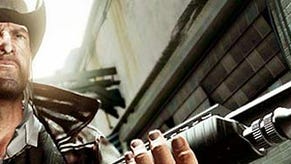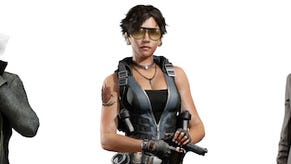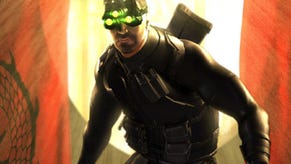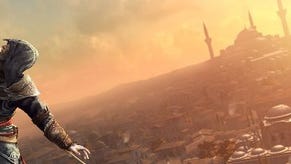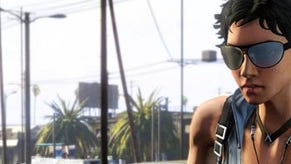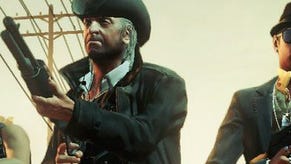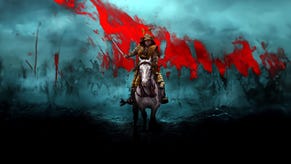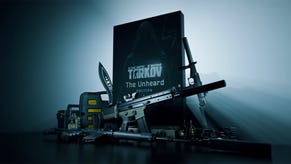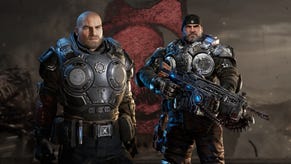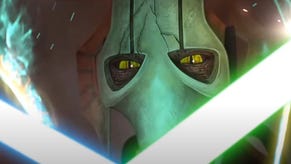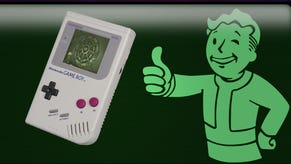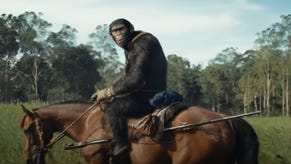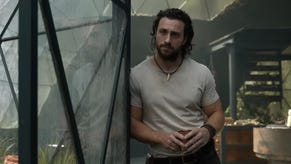Call of Juarez The Cartel devs insists: “The wild west lives on”
Call of Juarez is back, but not as we know it – it's transformed from a Wild West action shooter into a modern-day outlaw cop drama based around the Mexican cartel. We speak to Techland's Samuel Jacques and get a first look at two demo levels to see how that controversial setting change is working out.
The first thing I thought when I heard that Call of Juarez had given up on the wild frontier was that Techland had traded away the most interesting thing about a series of otherwise not especially distinguished shooters. Since Bound in Blood came out in 2009, Red Dead Redemption has shown us just how compelling this setting can be, and made us wonder why videogames don't choose it very often. I cannot be alone in wondering why the developer would abandon it in favour of a much more conventional modern-day gangland feel.
As far as product manager Aymeric Evennou is concerned, though, Techland hasn't given up the Wild West setting – just adapted it to the modern day.
“The wild west lives on, even in modern times,” he says, explaining the thinking behind the change. “The Wild West is mostly a location – and those locations have not changed much today, except for a few roads. It's also about lawlessness, where good guys fight bad guys with smoking guns – and the outlaw is still alive today. You can see it in LA, and in Juarez itself. This world is violent and lawless. When we talk about our Wild West, we talk about real men.”
"When we talk about our Wild West, we talk about real men.”
And women, as it turns out. Call of Juarez: The Cartel stars three hard-ass cops: Ray McCall, a grizzled, brutal old Vietnam veteran from the LAPD; Eddie Guerra, a chronic gambler from the DEA; and Kim Evans, a rising star in the FBI. Three characters allows for three-player co-op, a feature that Techland is very keen to talk up. The story can be played through with any one of these three, and each of them offers a slightly different take on events.
“We saw that people were expecting co-op in Bound in Blood, so it made sense to put some co-op in this one, for three players instead of two,” says producer Samuel Jacques. “We're relying on the three characters to sustain it. We don't want to have the traditional co-op where you have one main character and two or three more that you don't care about much.”
They're all take-no-s**t types, modelled on the anti-heroes of modern cop dramas like The Shield. They form a cross-agency task force tasked with investigating the Mexican cartel, and the game is constructed around that investigation, taking the three characters on a 16-mission road trip from California to Juarez.
The setting, then, varies from inner-city LA to the wild open roads that you might more readily associate with a Wild West theme. This variety is one of the key advantages that the change in setting affords, says Evennou – along with a greater range of weapons.
“The modern Wild West theme is a way to refresh the franchise and bring much more to the game in terms of design. It brings us lots of new weapons, in terms of variety and power – all gamers like that. It also brings vehicles – riding a horse is cool, but we prefer Mustangs.”
Personally, I'm not sure that all gamers do prefer bigger guns and muscle cars over horses and revolvers – a certain multi-million-selling success from last year rather disproves that theory.
Shooting the snitch
The demo kicks off with an image of gorgeous desert scenery that zooms out to reveal grimy, grey, horrible Los Angeles. The three cops are arguing in a car outside a suspect's apartment – in a quick few cutscenes full of hard-ass banter, they break into the apartment, wire the guy up and wait for his cartel contact to show up. Two guys turn up and promptly shoot the snitch – the three cops are too busy arguing amongst themselves back in the car to save him.
They then follow the suspects' car towards a nightclub, where three burly men block their way through to the back alley. A fist-fight ensues - “these guys are cops, they can't just open fire in the middle of LA” - before they gain entry to the club itself, which is inexplicably heaving with people in the middle of the day. After making their way through the crowd, they find and talk to the gang leader they're looking for in the VIP area – and, unsurprisingly, it degenerates into a huge shootout.
Evidently letting off shots in a back alley would be against best police practice, but a firefight in a crowded nightclub is alright.
The dialogue is – for the most part – cringeworthily bad. McCall shouts random, swear-peppered biblical phrases as he shoots at enemies, and pretty much all of Kim's dialogue conforms strongly to the overcompensating tough female cop stereotype. Latino gang members yell, “It's time to meet your maker, esse!” before the nightclub turns into a shooting gallery. It's not all that much worse than your average game, but you can't invite comparisons with something as powerfully and tautly written as The Shield if this is all you have to offer up.
The action itself, however, seems solid. It's very much a matter of hiding behind cover and shooting bad men when they pop into your field of vision – although many of them seem happy to stand in the middle of rooms rather than dive behind the nearest crate. It's fast-paced, if predictable – ghostly outlines indicate where you're supposed to run to next, or where to stand so that your co-op partner can breach a door with you.
"It's about about the player experiencing the characters – you don't play three different borderline cops in other games."
Without the setting, though, and without anything particularly distinctive about the actual shooting, what is it that distinguishes Call of Juarez from the crowd? What makes it interesting? Jacques does not appear to have an answer ready for this question when I put it to him.
“Well, we've yet to reveal some features,” he says. “For me it's not the gameplay. We're a first-person action shooter. It's about about the player experiencing the characters – you don't play three different borderline cops in other games.
“Action shooting is the core feature of the game – but there are also elements around being a cop. You have to use your fists instead of guns to deal with some situations, for instance, and there are undercover missions. It's not just action, action, action – there are also elements of investigation. We wanted that to provide more variety than the traditional [action shooter].”
Those characters are going to have to be strong to hold up the whole game, then – and in this early demo, it was very difficult to get a feel for them. The co-op elements don't appear to be particularly complex or innovative, but we have only seen one level. If Call of Juarez's success is going to ride on these things, a lot of work is going to have to go into polishing them up.





